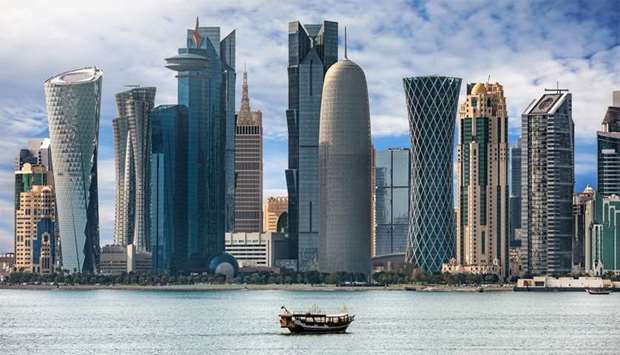Ambassador of the State of Qatar to the Federal Republic of Germany, H E Mohammed Jaham Al Kuwari, has said that the Qatari economy continues to grow sustainably and is creating a wide variety of opportunities for local and foreign investors.
The ambassador said that Qatar has taken several measures to limit the spread of the COVID-19 pandemic.
The ambassador praised, during an interview with the Near and Middle East Association (NUMOV) publication in its fourth issue for this year, the strong bilateral ties between the two countries, particularly in the economic field.
He noted that Qatar is an investor in major German companies and aims to enhance ties with Germany further. His Excellency said that Qatari investments in Germany were about 25bn and that there are more than 300 German companies operating in the Qatari market in various sectors, noting that the measures taken by the State of Qatar to combat the outbreak of the coronavirus (COVID-19) have achieved great success.
He said that Qatar looks forward to welcoming fans of all nationalities to the World Cup 2022. He noted that the State of Qatar continues to prosper, with the country looking to diversify its economic streams by investing in major companies like Siemens, Deutsche Bank, and Volkswagen. He added that recent years have seen the country become more independent, and invest in new markets through economic partnerships.
The Ambassador said that the State of Qatar is looking to enhance its economic ties with Germany, with a focus on small and medium enterprises (SMEs), which represented 80 percent of German companies in 2018.
He referred to the announcement by Amir H H Sheikh Tamim bin Hamad Al Thani of investing ¤10bn to enhance economic cooperation between Qatar and Germany in different fields, including, health, education, and liquefied natural gas (LNG). On the measures that Qatar took to combat COVID-19, Al Kuwari said that Qatar responded quickly and understood early on the dangerous impact of the crisis. He added that the country relied on its experience in managing crises and on its medical institutions while benefiting from the best international practices. He noted that the plans were all implemented in cooperation with international organizations.
The strict measures implemented by Qatar included suspending schools and universities, limiting gatherings in public places, closing malls, and parks, in addition to limiting the number of employees allowed to go to work and limiting work hours. Qatar’s health sector offered a hotline around the clock for the public, in addition to building hospitals that had a total capacity of 14,000 beds. Qatar is also using Roche’s Cobas 6,800 system, which could conduct 1,200 tests in 24 hours.
The country also ensured the availability of protective equipment in the market. There were also new factories that were built to meet demand. He noted that the country built a self-sufficient economy following the blockade, and managed to navigate the current critical period successfully.
He shed light on the cooperation between Qatar and Germany in repatriating 70,000 German citizens through Qatar Airways. Qatar also provided medical equipment to many countries such as Italy, Iran, Tunisia, Lebanon, and Nepal. On the repercussions of the coronavirus, he stressed that the Qatari economy continues its growth, noting that the country is working on maintaining the prosperity of the economy.
The Ambassador highlighted the steps taken by the state to enhance its reputation as a reputable supplier of LNG to the entire world, with the agreement with China on that front the latest evidence of that.
He also noted that Qatar is the second biggest producer of Helium, adding that the state is preparing an ambitious strategy that will diversify the economy and limit the impact of energy prices on the economy in the future. As for Qatar’s preparations to host the World Cup 2022, the Ambassador said that hosting the finals will contribute to realizing Qatar National Vision 2030.
The Peninsula
08/07/2020






















































